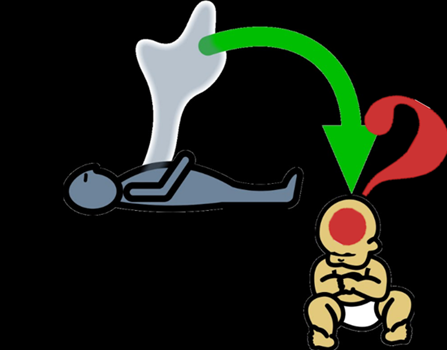Reincarnation after all?
24-01-2017 - Posted by Andre PietIn response to my previous blog I received an additional reaction.
There are more Bible verses which seem to be handling about reincarnation. What is your view on these?
Let’s have a closer look at them, one by one.
- Matthew 11:14 Jesus says that John the Baptist is Elijah who would come.
- Matthew 13:14-16 The Israelites think that Jesus is Elijah or one of the prophets.
John the Baptist is Elijah who would come. That seems to be evident, but the picture is far from complete. Because in John 1 we read that a delegation from Jerusalem comes to John the Baptist and present him with the question whether he is Elijah (John 1:21). And then he decisively answers:
I am not.
At first sight it seems to be a huge contradiction to what Jesus said. Still that merely appears to be. When the angel appears to Zechariah in the temple and announces the birth of John, he says the following (Luke 1):
17 And he (= John) shall be coming before in His (= God’s) sight in the spirit and power of Elijah, to turn back the hearts of the fathers to the children, and the stubborn to the prudence of the just, to make ready a people formed for the Lord.
John the Baptist is Elijah who would come. Only not literally in person, but in “the spirit and power of Elijah”. His whole performance reminded of Elijah. Even in appearance. Characteristic for Elijah’s appearance was his hair garment and leather belt (2 Kings 1:8). And exactly like that John the Baptist appeared as well (Mark 1:6).
-
Zechariah 12:10 / Revelation 1:7 Also they who have pierced him shall see Jesus. To me this seems to be about the generation that lived at the time Jesus was here on earth.
When we would consider the words “Also they” individually, than this is an argument. However to me this seems not to be the case here. In the first place, literally speaking it was just one Roman soldier that pierced Jesus. But because this soldier handled on behalf of the “inhabitants of Jerusalem” who handed him over to the Romans, it is accounted to Israel as a nation. When Jesus will appear on the Mount of Olives at Jerusalem in the future, this same nation will see him again. Totally different individuals, but the same nation.
- I have understood that Israel will rule over the earth during the 4th eon and that all nations will go up to Jerusalem to get to know the word of God. It seems logical to me that everyone who has lived during the 2nd and 3rd eon will live on earth again through reincarnation. Everyone will learn the truth then.
The presumption in this question is that all people who ever lived will experience the coming eons. But on what is this based upon? On the fact that all nations will get to know the Word of God? But doesn’t “all the nations” mean something totally different then all the people who have ever belonged to those nations? All the nations simply means: All nations living at that time. I don’t see any reason to think of reincarnation here.
- We are formed as clay in the hands of the potter. Someone who is aborted or who dies at a very young age can’t or hardly can be formed in that life here on earth. Those can be formed in a next life when there is reincarnation.
This is a reasoning, not a Scriptural fact. Someone who dies as a baby has hardly been formed, that is true. But is reincarnation the only way to be formed in a next life? The Bible speaks about a next life, but always in relation to resurrection. Like Revelation 20:4 which speaks of the millennium in which Satan will be bound:
The rest of the dead do not live until the thousand years should be finished. This is the former resurrection.
The dead at the start of the thousand years don’t reincarnate, but wait in the grave until the resurrection, after the thousand years. In the mean time they are dead. And at the “great white throne” they will rise. Revelation 20: 12
And I saw the dead, the great and the small, standing before the throne. And scrolls were opened.
All (remaining) dead will stand before this throne. That is to say , all that have died. Including the small ones. Also they will be judged. Don’t they, in particular, need to learn a great deal? And would that not also be one of the reasons why books (Greek: Biblia!) are opened? There is no place where a human will be formed by teaching like right there at the great white throne!
Summarizing, In the above mentioned reasons, I don’t see a solid Biblical motive to think of reincarnation. The idea of reincarnation is a degeneration of the Biblical teaching of rebirth and resurrection. As well as the teaching of the immortal sole. The hope for the dead is not reincarnation, but solely resurrection.

 English Blog
English Blog